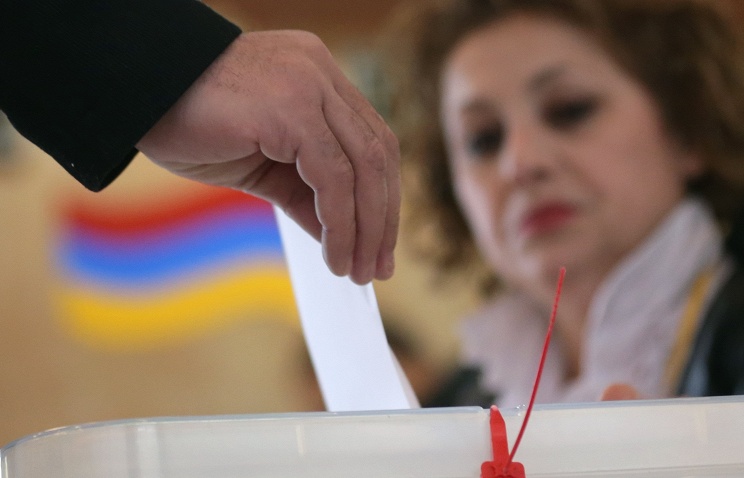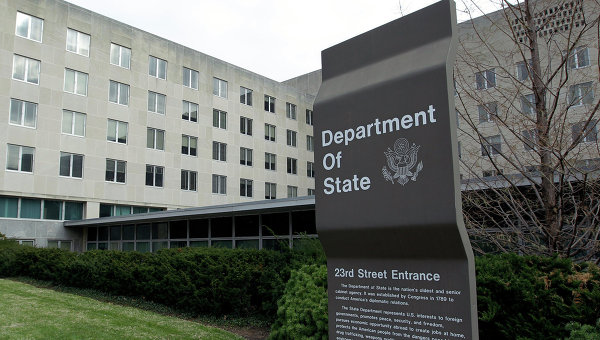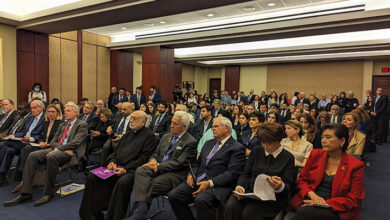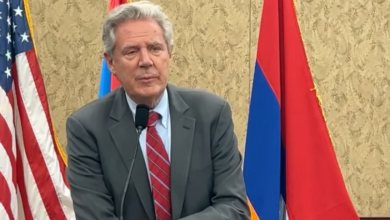Venice Commission and ODIHR’s joint opinion on the draft electoral code of Armenia

The Venice Commission at its meeting on 10-11 June in Venice has endorsed a joint (with OSCE/ODIHR) opinion on the draft electoral code of Armenia.
Executive summary is below:
11. The Venice Commission and OSCE/ODIHR have closely followed changes to the Electoral Code of Armenia through several opinions. The proposed draft electoral code follows the 2015 adoption of a revised Constitution. In line with previous Venice Commission and OSCE/ODIHR opinions and reports, it is underscored that the key challenge for the conduct of genuinely democratic elections is the exercise of political will by all stakeholders to fully and effectively uphold the letter and the spirit of the law. The timeframe for reform is regrettably very short, as the Constitution provides that the new code has to enter into force by 1 June 2016. While the stability of the electoral system is a key principle, it is equally important to have sufficient time for a thorough, inclusive, and public discussion in order to build consensus and confidence around major changes in electoral legislation.
12. The draft electoral code could provide an adequate basis for the conduct of democratic elections, and has addressed some prior Venice Commission and OSCE/ODIHR recommendations. For example, it introduces a system to improve voter identification, enhances the Central Electoral Commission regulatory powers, strengthens the quota for the participation of women as candidates, removes provisions that could lead to the arbitrary withdrawal of observer accreditation, and systematises the rules on campaigning.
13. However, significant concerns exist in the draft code, including with regard to insufficient measures to enhance confidence in the accuracy of voter lists, a lack of clarity as to how the introduction of new technologies may be implemented, and the restrictions on citizen election observers. The draft code also does not address a number of prior recommendations related to the effectiveness of complaints and appeals procedures, the transparency and accountability of campaign finance, safeguards against potential abuse of state resources, and clarity of the role and oversight of media during elections.
14. Mainly in order to address the constitutional requirement to guarantee a “stable majority”, the new electoral system proposed in the draft code is rather complex. It establishes a number of significant deviations from a purely proportional system, which in combination with the short time allocated to carry out the reform, may affect voters’ trust in the electoral system.
15. It is recommended to address the following key issues:
A. The draft code establishes limitations and deadlines for the formation of coalitions after the first round of elections. These provisions unduly limit the possibility of building a political coalition as a means for ensuring the “stable majority” required by the Constitution. It is recommended to reconsider restrictions on the number of participants in a coalition and extend the time period for formation of coalitions after the first round.
B. Concerns regarding the accuracy of voter lists and potential impersonation of voters de facto abroad underlie longstanding opposition and civil society calls to publish signed voter lists after election day. Publication of signed voters’ lists raises a number of concerns regarding privacy of information. The concerns expressed by civil society seem to have been at least partially addressed in the interim version of the draft code, through the possibility of accessing the list of voters who voted. Considering the importance of ensuring a balance between data protection and the secrecy of the vote on the one hand and stakeholders’ interest in consulting the signed voter lists on the other, it is recommended, as a confidence building measure, to allow meaningful consultation of signed voter lists by stakeholders under specific conditions.
C. The draft code envisages the introduction of new technologies in respect of voter registration and identification. It is welcome that voter registration and identification issues are addressed, but the proper implementation of new technologies has to be ensured. Particularly in light of the short time before the next elections and the need to build trust in the electoral process, it is recommended that a number of issues be thoroughly considered, including harmonising new provisions with existing data protection laws and standards, applying proper procedures for procurement, ensuring public testing and certification of the equipment, guaranteeing contingency planning, providing sufficient training for electoral staff, and ensuring effective awareness-raising among voters and political parties. A gradual approach to the introduction of such technologies through a series of pilots would be a measure to enhance confidence in the system and provide opportunities to address technical issues regarding effective implementation. Initial pilots could take place, for example, during the upcoming local elections.
16. Additional recommendations include:
D. The draft code establishes or maintains restrictions on citizen election observers which may impede their activity and undermine transparency of the electoral process. It is recommended to remove the mandatory testing and certification of citizen observers, as well as the requirement that the charters of citizen observer organisations be in force for the three years preceding the elections, as this would deprive new organisations of the possibility to observe elections.
E. The code should further guarantee the independence of the electoral administration, notably, by ensuring that presidential powers to nominate members of the Central Electoral Commission in case of a parliamentary stalemate are exercised in consultation with all parliamentary parties and by clarifying the procedure for the early termination of mandate.
F. While the draft code improves the previous gender quota for candidate lists, increasing it from 20 to 25 per cent within certain brackets of the list, the impact might be limited. It is recommended that the draft code provide for a still more effective quota for women’s representation, for example by placing women among every two or three candidates.
G. Particularly in light of the extensive changes to the electoral system, the draft code would benefit from simplifying and clarifying procedures for voting, counting and tabulation, as well as the determination of election results. This would also require extensive training for electoral staff and comprehensive voter education well in advance of elections to ensure better understanding of the process and enhanced public confidence.
H. Electoral reform requires broad and public discussion in order to encourage participation in the process and acceptance of the outcomes. Final amendments to the code should ensure meaningful engagement with all relevant stakeholders, so as to encourage broad agreement and support for the new code.
17. In this joint opinion, the Venice Commission and the OSCE/ODIHR have made recommendations to the authorities of the Republic of Armenia in support of their efforts to improve election-related legislation and bring it more closely in line with OSCE commitments and European and international standards. However, it must be emphasised that, in addition to further amendments to the legislative framework, an effective and impartial implementation of the law is necessary to ensure conduct of elections in line with international standards.








